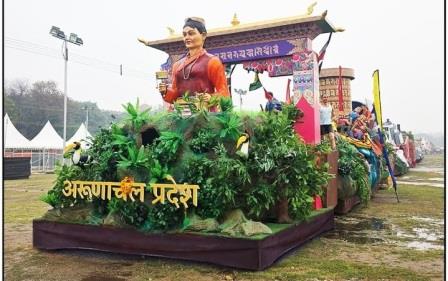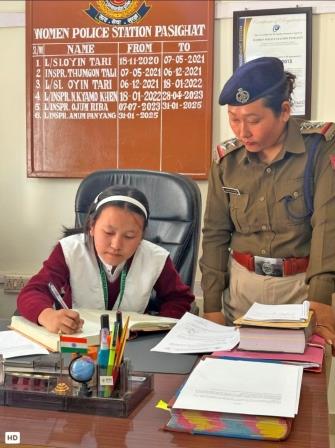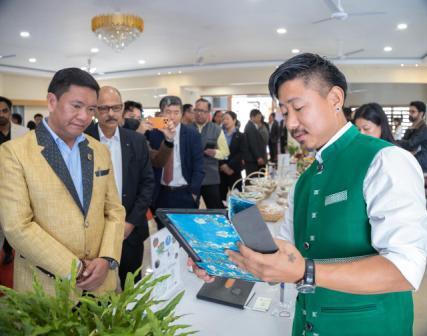-
 Arunachal tableau on R-Day spotlights state’s emergence as Adventure Capital…
Arunachal tableau on R-Day spotlights state’s emergence as Adventure Capital…
-
Etalin marks National Voters’ Day, encourages youth participation in democracy
-
Sona reviews PMGSY, VVP projects in Itanagar Circle
-
Lok Bhavan celebrates UP Diwas
-
 KGBV student leads WPS Pasighat on National Girl Child Day
KGBV student leads WPS Pasighat on National Girl Child Day
-
Meritorious students felicitated on National Girl Child Day
-
Awareness on POCSO held as part of National Girl Child…
-
Anini certifies 79 Nature Guides on National Tourism Day
-
 Startup success stories reflect potential of state’s youth: CM
Startup success stories reflect potential of state’s youth: CM
-
 Mein participates in vintage Willys Jeep Rally, inaugurates World War…
Mein participates in vintage Willys Jeep Rally, inaugurates World War…
National Medical Commission (NMC) Bill, 2019 was passed in Rajya Sabha on Thursday and has attracted vehement protests from the medical fraternity all over the country. Although, according to the central government, it aims to provide for a medical education system that improves access to quality and affordable medical education and will ensure availability of adequate and high quality medical professionals in all parts of the country, there are certain provisions that are raising eyebrows of critics who have termed it as ‘anti-poor, anti-student, undemocratic & promotes quackery’. At this juncture, Union Health Minister on Friday met the protesting doctors in an effort to clear doubts. As of now, with the two factions steadfast in their standings, experts believe that there is need for an amicable solution immediately to get out from the stalemate.
NMC Bill proposes to repeal Indian Medical Council Act, 1956 and replace Medical Council of India (MCI), which was dissolved in 2010 following corruption charges and give way to creation of a National Medical Commission which will function as an umbrella regulatory body with certain other bodies under it. NMC will regulate medical education and practice in India and will enjoy authorities such as approving and assessing medical colleges, conducting common MBBS entrance and National Exit Test (NEXT) for admission to post-graduate medical courses and for obtaining a license to practice and regulating medical course fees. Although disagreements are flowing over various points, the bone of contention seems to be Section 32 which will allow nearly 3.5 lakh Community Health Providers or 'quacks' in colloquial parlance, to prescribe drugs. According to the opponents of the Bill, as the term ‘Community Health Provider’ hasn’t been adequately defined and any ‘person connected with modern scientific medical profession’, which in reality implies compounders, lab technicians, blood sample collectors, etc, will be eligible to practise modern medicine and write prescriptions! The Bill will also empower NMC to frame guidelines for determination of fee and other charges for 50% of seats in private medical institutions and deemed to be universities from the current system where state governments determine fees for 85% of seats in such institutions. Medical students have also raised objections over the efficacy of NEXT. Furthermore, it gives power to the central government to give policy and other directives to the NMC and its autonomous boards besides the authority to give directives to state governments for implementing provisions of the Bill, binding and final in both cases, prompting the opponents to call it anti-federal in character which will lead to favouritism and bureaucratic interference.
With many such ‘grey areas’, it is quite clear that stormy debates will continue in coming days unabated, unless there are genuine intentions for finding an amicable solution.

Kenter Joya Riba
(Managing Editor)She is a graduate in Science with post graduation in Sociology from University of Pune. She has been in the media industry for nearly a decade. Before turning to print business, she has been associated with radio and television.
Email: kenterjoyaz@easternsentinel.in / editoreasternsentinel@gmail.com
Phone: 0360-2212313

